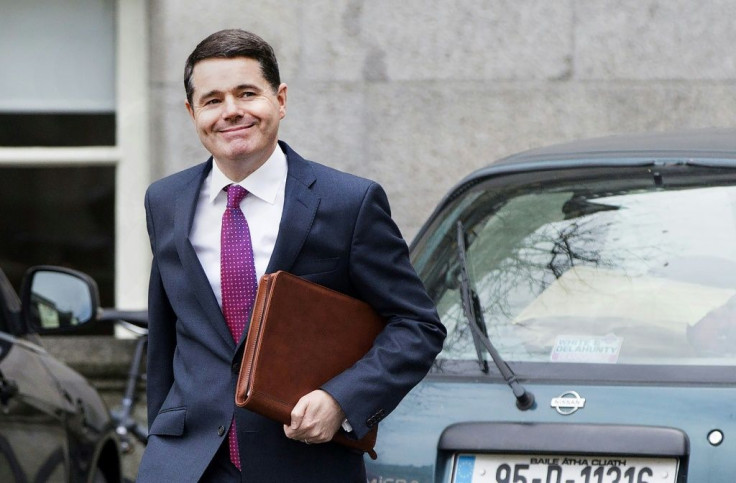Paschal Donohoe: Prudent Penny-pincher Of Post-crash Ireland
Paschal Donohoe, who was on Thursday named as the new head of the Eurogroup, has been Ireland's finance minister since 2017, spearheading measures to recover from a ruinous post-2008 recession and break the cycle of "boom and bust".
Fresh-faced, short and with a sing-song lisp, Irish media have playfully compared the 45-year-old's mannerisms to a choirboy or a school prefect.
But he earned their grudging respect for cautiously steering the Irish economy out of choppy waters.
Under his stewardship, the Irish government last year clawed its way back to a budgetary surplus for the first time in a decade, as he boosted state coffers to prepare for Brexit.
He retained his role in the new coalition government formed last month between the centre-right parties Fine Gael and Fianna Fail, propped up by the Greens.
That was taken as a sign of his solid reputation, and he was trusted to helm the economy as it navigates the twin threats of coronavirus and Brexit.
Donohoe was born in the Irish capital in 1974 and attended Trinity College Dublin on a scholarship, graduating with a degree in politics and economics in 1996.
He left Ireland for Britain to work for multinational Procter & Gamble on the fast-track graduate training programme.
He rose through the ranks in six years to become UK director of sales and marketing, returning to Ireland in 2003 to work for drinks giant Diageo, which owns Guinness.
From there, he entered local politics on Dublin City Council.
He was elected to the Irish parliament in 2011 for Fine Gael as voters turned their back on the Fianna Fail government of Brian Cowen as punishment for the post-2008 recession and austerity.

From 2013 to 2016 he served variously as transport, tourism and sport minister; public expenditure minister; and European affairs minister.
When Leo Varadkar became taoiseach (prime minister) in 2017, Donohoe was appointed finance minister, presiding from an office he decorated with "Star Wars" figurines.
He emphasised deficit reduction and pledged to work to "redefine, re-energise and renew" the political centre-ground to create "a republic of opportunity".
His first budget in 2018 was described by the Irish Times as "more porridge, less pyrotechnics".
The same could be said of of his second and third uncontroversial budgets.
Overshadowed by the threat of a hard Brexit fallout, Donohoe has sought to rebuild fiscal buffers and avoid lavish spending which defined the heady boom of the "Celtic Tiger" period that precipitated the post-2008 crash.
He has defended the low 12.5 per cent corporation tax and resisted the European Commission's digital services tax, ring-fencing receipts from tech giants such as Apple and Facebook who both have bases in the republic.
During the coronavirus crisis, he marshalled support for hobbled businesses and saw unemployment soar to an unprecedented 28 percent.
He said Ireland faced the emergency "from a position of strength" thanks to "prudent policies implemented in recent years".
New prime minister Micheal Martin, of Fianna Fail, nominated him to return to office two weeks ago.
Martin said Donohoe would lead Ireland to a "strong and dynamic economy" by "shaping fundamental economic policies under discussion within the European Union and internationally".
© Copyright AFP 2024. All rights reserved.




















